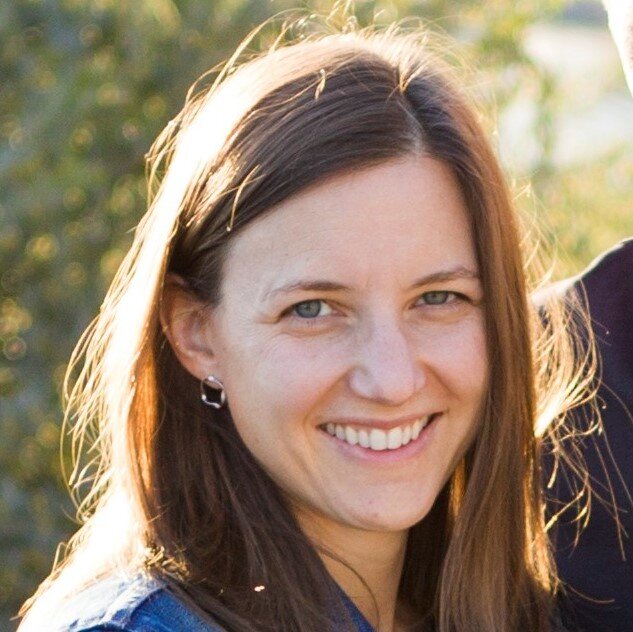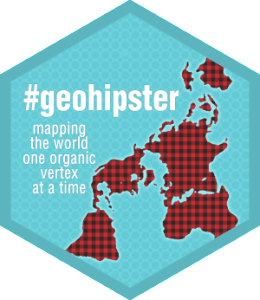
Trisalyn Nelson joined the Department of Geography at UCSB as Jack and Laura Dangermond Endowed Chair of Geography in 2020. From 2016-2020 she was Director of the School of Geographical Sciences and Urban Planning at Arizona State University. Prior, she was the Lansdowne Research Professor and Director of the Spatial Pattern Analysis and Research Lab at the University of Victoria, Canada. Trisalyn is mom to Beatrice and Finn and married to Ian Walker. She loves bicycling and baking, especially with her family.
Trisalyn was interviewed for GeoHipster by Atanas Entchev.
Q: How did you get into GIS?
A: As a student I was really interested in forest conservation. I had a summer internship at the Pacific Forestry Center and one of the mentors I met there showed me how being technically proficient in GIS and spatial data analysis would allow me to support better forestry decisions. As a result, I had to go and take a lot of additional classes, including pre-requisite courses, to get the data and computing skills needed to pursue GIS. But, I am so glad I did.
Q: How did you decide to pursue a career in academia?
A: I am an accidental geographer and an accidental academic. As the first in my family to attend university, I did not understand what a PhD was. I remember being super confused about the difference between a TA and a professor. I had many great professors and mentors that helped me succeed in university.
It was really a combination of a field course in the Rocky Mountains and great internships that lead me to learn how to do research. As someone that had struggled early on in university, it was amazing when I discovered GIS was something I was good at.
Q: Tell us about your typical work day (or week) — what you do, what GIS and other tools you use.
A: Hmm… well… I use lots of different tools. But, my favorite part of my job is scheming up new ways to answer questions using spatial data. I love collaborating and if someone comes by with spatial data I can’t help but get excited about finding ways to help with analysis. I have worked with many interdisciplinary teams and there is something so satisfying about seeing other people light up when they realize how GIS and geography can create a deeper understanding of data and issues.
Q: As an avid cyclist and a former year-round bike commuter I can relate to your bike safety concerns, and I admire your BikeMaps initiative. Tell us more about it.
A: I love bicycling and I love maps. BikeMaps.org is the bringing together of both the things. When I first had the idea, in response to my own near miss, I thought it would just be a fun summer project. But, it turns out that only about 20% of bicycling crashes are officially reported and there is a need to fill data gaps on bicycling safety. BikeMaps.org is a crowdsource tool for collecting data on bicycling crashes, near misses, and falls. We ask questions about what happened and the impact of the incident. We have published several papers using the data and are improving bicycle safety by providing hot spot maps to cities and modelling predictors of bicycling injury. We are so proud that cities are making investments to improve bicycling based on BikeMaps.org data.
We are launching a new project called WalkRollMap.org which uses a similar approach as BikeMaps.org for mapping micro barriers to walking and rolling with wheelchairs and other mobility assisting devices. The goal of this project is to reach people that are underseved by transportation systems and help them map where investment would enable their mobility. Stay tuned!
Q: What was/is the biggest challenge in developing and running BikeMaps? The technology? The data? The “crowd”?
A: Luckily we have always had an amazing technology development team that has protected me from some of the technological challenges. Using a crowdsourced tool requires ongoing promotion to people that can provide data, and constantly reminding people we are here is a challenge. But, the biggest challenge is working to ensure the data are representative. People providing data to BikeMaps.org are people that have access to both bicycling and technology. We need to ensure that people that do not have access are not left behind. Working to engage older adults, youth, women, low income and homeless people, and people of color is really critical and something we are focusing on improving in the next wave of data collection.
Q: You are the Jack and Laura Dangermond Chair of Geography at UCSB. You are also “The Dangerman Chair”. Tell us about the former. Who awarded you the latter?
A: The Jack and Laura Dangermond Chair in Geography is a faculty position at UCSB. The chair is endowed by the generous Dangermonds. Originally, it was created for Michael Goodchild, one of the key leaders in the field of GIS. As such, I see the position as a really important mixture of teaching, research, and disciplinary leadership. I am hoping that in this position I can be a champion for inclusive and impactful geographical research. With so many pressing issues, from climate change to social inequity, we need to do everything we can to accelerate solutions.
I received the Dangerman Chair award from my 9 year old daughter Beatrice Nelson-Walker. She heard me talking about the Dangermond chair and how excited I was to be moving to UCSB to be the Dangermond chair of geography. So she drew me a picture for my office. I guess she heard Dangerman.
Q: I have never been to Santa Barbara, but I’d love to visit some day. Looks wonderful. Tell us about life in Santa Barbara.
A: Santa Barbara is really beautiful. It is near the ocean with a moderate climate. Lots of bicycling and hiking. And, the food is delicious.
Q: Do you still bike to work?
A: Absolutely! I love biking, with bike commuting being my favorite.
Q: What do you do for fun?
A: I love to bake. I make fancy cakes for my kids’ birthdays, usually in the shape of animals. And, I have a line of cookies.
Q: Do you have any hipstery traits? Other than cycling, of course (a fixie maybe?)
A: I am obsessed and snobby about coffee. Though, I think hipsters may be trying to ruin coffee with sour roasts!
Q: On closing, any words of wisdom for our global readership?
A: Geographers should be at the forefront of creating solutions to the world’s most pressing issues. From climate change to social justice the tools that geographers have are critical for making the world more sustainable and more inclusive.

Leave a Reply